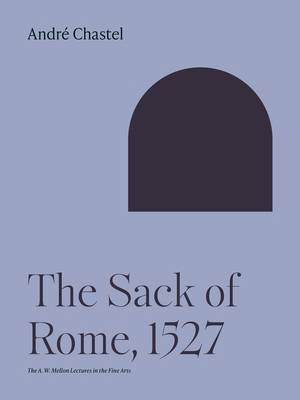
- Retrait gratuit dans votre magasin Club
- 7.000.000 titres dans notre catalogue
- Payer en toute sécurité
- Toujours un magasin près de chez vous
- Retrait gratuit dans votre magasin Club
- 7.000.0000 titres dans notre catalogue
- Payer en toute sécurité
- Toujours un magasin près de chez vous
Description
From a leading art historian of Renaissance Italy, a compelling account of the artistic and cultural impact of the sack of sixteenth-century Rome
In this illustrated account of the sack of Rome as a cultural and artistic phenomenon, André Chastel reveals the historical ambiguities of preceding events and the traumatic contrast between the flourishing world of art under Pope Clement VII and the city after it was looted by the troops of Emperor Charles V in 1527. Chastel illuminates the cultural repercussions of the humiliation of Rome, emphasizing the spread or "Europeanization" of the Mannerist style by artists who fled the city--including Parmigianino, Rosso, Polidoro, Peruzzi, and Perino del Vaga. At the same time, Clement's critics used the new media of printing and engraving to win over the people with caricatures and satirical writings, while Rome responded with monumental works affirming the legitimacy of the pope's temporal power. Chastel explores both the world that was lost by the sack and the great works of art created during Rome's recovery.Spécifications
Parties prenantes
- Auteur(s) :
- Traducteur(s):
- Editeur:
Contenu
- Nombre de pages :
- 344
- Langue:
- Anglais
- Collection :
Caractéristiques
- EAN:
- 9780691252230
- Date de parution :
- 15-08-23
- Format:
- Livre broché
- Format numérique:
- Trade paperback (VS)
- Dimensions :
- 203 mm x 254 mm
- Poids :
- 680 g

Les avis
Nous publions uniquement les avis qui respectent les conditions requises. Consultez nos conditions pour les avis.






